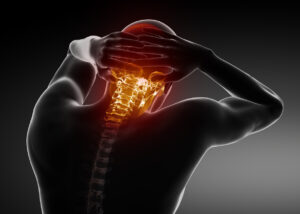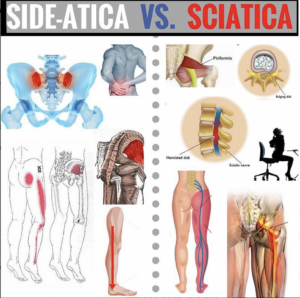Should I Get A MRI For My Painful Shoulder | Dr Alex Ritza Yorkville Chiropractor
In this post, we’re gonna talk about whether or not you should get an MRI for your painful shoulder. This post is going be helpful to you if you have a painful shoulder or frankly any other body part. The research for imaging painful shoulders is very similar for other parts of the body in terms of when it is necessary.
As s NeuroStructural chiropractor practicing in Yorkville Toronto practicing corrective chiropractic care, ours office’s goal is always trying to fix the underlying problem. That is so applicable for today’s video and today’s post because when comes to the underlying problem that might cause somebody’s shoulder pain or their back pain, often an MRI is not going to show that.
So, if you’ve got a painful shoulder, or you’ve got a painful back, what do you do?
We are going to review a couple of studies today to help us answer that question.
Study shows that pain and movement do not predict tears
The first study we review is from 2001 by Alaiti et al entitle “Painful Shoulder Movements are NOT Related to Rotator Cuff Findings on MRI” published in Pain Reports. This study showed that when the researchers looked at the evidence, they were not able to correlate whether somebody had a rotator cuff tear to their pain levels. In other words, whether a patient’s pain level is very low or very high, it doesn’t tell us whether something is torn or not. Furthermore, how they were able to move their shoulder or not able to move their shoulder did not correlate with having a rotator cuff tear either!
This means that when a patient comes into my office, shoulder being in excruciating pain versus somebody who doesn’t have excruciating shoulder pain, it’s not a good predictor of whether that person or those people do or don’t have a rotator cuff tear. Same thing if somebody’s not able to move their shoulder versus fully able to move their shoulder.
On the other hand, if you have somebody with frozen shoulder and they’re only able to abduct to raise their shoulder, say 20 or 30 degrees, that person definitely has frozen shoulder. That examination finding, in this extremely limited mobility, is a very good predictor that it is a case of frozen shoulder.
Study shows that we are all* going to get rotator cuff tears
To answer our questions of whether you need an MRI or not, there’s another really important study that we need to discuss; “Epidemiology and Demographics of the Rotator Cuff Tear” by Gumina et al, 2016, published in the Journal of Rotator Cuff Tear. This study looked at the percentage chance of having a rotator cuff tear in the NON-PAINFUL shoulder of participants at different ages. To repeat, these were asymptomatic people whose shoulder’s were assessed for rotator cuff tears by imaging despite them being pain free and having no complaints about their shoulder!
 The slide from the study below says it all! It shows that the chance of having an asymptomatic rotator cuff tear was 5% between 30 and 40 years old, 11% from 40 to 49 years old, 37% from 50 to 60 years old, 50% from and 70 to 80 years old, and *80% if you are older than 80. This study shows that as somebody gets older, they are more likely to have a rotator cuff tear that is not causing them any pain and not causing them any problems according to the participants. Now, it could definitely be argued that a tear is gonna cause them problems if they push themselves, like trying to play tennis, golf, or throw a baseball but at least in this study, the authors did not assess for that level of function.
The slide from the study below says it all! It shows that the chance of having an asymptomatic rotator cuff tear was 5% between 30 and 40 years old, 11% from 40 to 49 years old, 37% from 50 to 60 years old, 50% from and 70 to 80 years old, and *80% if you are older than 80. This study shows that as somebody gets older, they are more likely to have a rotator cuff tear that is not causing them any pain and not causing them any problems according to the participants. Now, it could definitely be argued that a tear is gonna cause them problems if they push themselves, like trying to play tennis, golf, or throw a baseball but at least in this study, the authors did not assess for that level of function.
These two pieces of research tell us that if somebody comes into my office, I am not really able to tell from an assessment or from listening to them, whether or not they have a rotator cuff tear.
I can make an educated guess it is more likely to be a tear with increasing age but it is purely a guess.
This means that an MRI would be necessary to identify a rotator cuff tear but this is unnecessary for delivering great results in the vast majority of cases. If you are a professional athlete and you have the option to skip conservative care and go right to an injection or surgery then get an MRI. Otherwise, it can wait.
WHY GORD DIDN’T NEED AN MRI
Let’s consider by patient nicknamed Gord. Gord came to see me a few months ago with a near full thickness tear of his RIGHT supraspinatus. He was getting really jarring, sudden shooting pain in his shoulder with random movements that was making daily life very difficult. Imagine getting a terrible pain from getting off the couch, reaching for the salt or very basic shoulder movements.
Gord had been to physiotherapy, he’d been to see his doctor, he’d done lots of YouTube videos, nothing had worked. I was “his last stop” before he was going to get surgery. So one thing that we did different with Gord was we assessed his body from head to toe, and did a really thorough assessment of his spine, nervous system; especially the nervous system connection between his neck and his shoulder.
We found that the left and right side of the spine were completely different. Left side of spine and shoulder were very health. Like Two-Face, the right side of his spine and rib joints were incredible restricted and irritated and the muscles of the shoulder complex for tight or in complete spasm. The neck muscles and shoulder muscles were extremely tight and the nerves leaving his neck were very irritated causing shooting pain down the arm when provoked. Numbness and tingling from palpation of the neck-arm nerves and in the end, he had a significant problem with his shoulder but also with his spine and with his nervous system.
So in Gord’s case we addressed and fixed the underlying problems with his spine, nervous system AND shoulder. We got his spine to move properly, making sure that his nervous system and most importantly, the nerves leaving the neck towards the shoulder were sending and receiving the right electrical signals. The consequence of that was less pain, softer muscles and a shoulder that a few months later, was able to move in a full range of motion and able to do every activity he has tried. Within four months, Gord had no sudden sharp shooting pain with moving his shoulder around.
In this case, Gord had a full thickness tear of his supraspinatus. Did it matter? No, not really. Did it make it harder to improve? Yeah, but he still got better albeit a little bit slower than a lot of other people.
WHY YOU PROBABLY DON’T NEED AN MRI FOR YOUR SHOULDER COMPLAINT
You likely do not need an MRI for your shoulder because
- What we see on an MRI does not correlate to a symptom or a dysfunction. It may show us that the body’s not perfect internally but we know from these two aforementioned studies that a tear doesn’t necessarily cause pain or affect function. Your body’s an amazing evolutionary machine and it is able create compensatory patterns and to work really well because there is redundancy built into the system. If we see a tear on an MRI it does not tell us whether or not that is necessarily what is causing your pain!
- An MRI is not a replacement for a good examination. If you see a doctor like me that focuses on getting to the root of the problem then your examination should be thorough enough to identify that pain generator (an MRI can’t do this!) and what parts of the body are not functioning properly and might have caused the injury in the first place. Even if imaging does indicate a tear it will not show what joints, nerves, muscles and soft tissues are contributing to the root of the problem that almost always need to be addressed for best results.
- Most all shoulders get better with conservative care not requiring injection or surgery. In Canada at least, me, your physician and the medical system is going to start with conservative care 99.99% of the time because the research says you are almost always going to get better if your chiropractor or physiotherapist knows what they are doing. If your expert’s approach is not working then you should probably go see somebody else. And if it doesn’t work, you should probably go see somebody else until you find the person that looks at your body as a whole and fixes the underlying problem. If conservative care is not working then get an MRI because it will probably show you why conservative care is not working. An MRI is going to be useful for your surgeon or for your sports medicine doctor to show them where they should do an injection or where they should do some cutting during surgery.
So, should you get an MRI in the province, Ontario? That’s up for your doctor to decide.
But the research indicates that for the most part it’s probably not needed if you are getting really good care and if you are addressing the underlying problem.
If you have shoulder pain, you can check out our Shoulder Rehab Guide – a 30 minute video on how I rehab somebody from shoulder pain to shoulder performance.
Thank you for reading. Have a great day.




